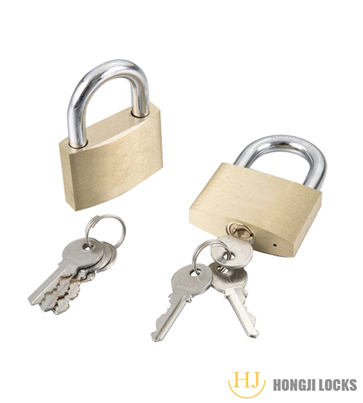Zinc alloy
Zinc alloy, as its name implies, is mainly composed of zinc, and the alloy is formed by adding metals such as aluminum, copper, magnesium and other elements. Zinc alloy is cheap, can replace copper in many occasions, and is widely used in the lock industry.
Advantages of zinc alloy:
1. The price is cheap (mainly compared to copper).
2. It has good fluidity after melting, and can be directly cast into various complex shapes, which is easy to cast and saves a lot of machining procedures.
3. Moderate hardness, high plasticity, easy to polish, and can also be processed by precision machining after die-casting.
4. Easier to electroplating, good visual effect after electroplating, even comparable to brass.
Disadvantages of zinc alloy:
1. The melting point is relatively low, so it is not suitable for fire prevention occasions.
2. The wear resistance is poor, and the metal with higher hardness such as steel will wear out and deform after friction and impact.
3. Contains a small amount of lead, which is slightly harmful to the human body (some Nordic countries do not recommend the use).
4. The processing needs to open the mold, which is more expensive and takes a certain time. The factory generally requires 40 days (in fact, it can reach about 10 days).
Factors affecting the quality of zinc alloy products:
Raw materials: The lock industry generally believes that the quality of Australian zinc imported from Australia is relatively good; of course, the zinc alloys of several large domestic zinc factories are also good, most of which are in the Guangxi Autonomous Region. Since the proportion of various metals in the zinc alloy has a greater impact on electroplating, some factories keep the formula secret. Since zinc alloy scrap can be reused, generally excellent large factories will sell it, and ordinary manufacturers will re-smelt the zinc alloy scrap, which will affect the quality of the finished product.
Die casting machine tonnage: the common tonnage (pressure) is 88 tons and 160 tons, and Moli Lock has three die casting machines, namely Japan's Qibu 250 tons die casting machine, Jinji 160 tons die casting machine, and Baohong 160 tons die casting machine; If a factory uses a lot of castings, it is necessary to count their die casting machines.
Mold manufacturing level: Zinc alloy molds need to be completed by professionals, especially parts with complex shapes. Because it is necessary to consider how the liquid metal flows in the cavity, how to exhaust, how to reduce the flying material when the mold is closed, and make the marks of the mold not obvious. If the mold design is not good, even the best die-casting machine will make parts with sand holes. The perfect mold can even make the parts come out without polishing and electroplating directly.


